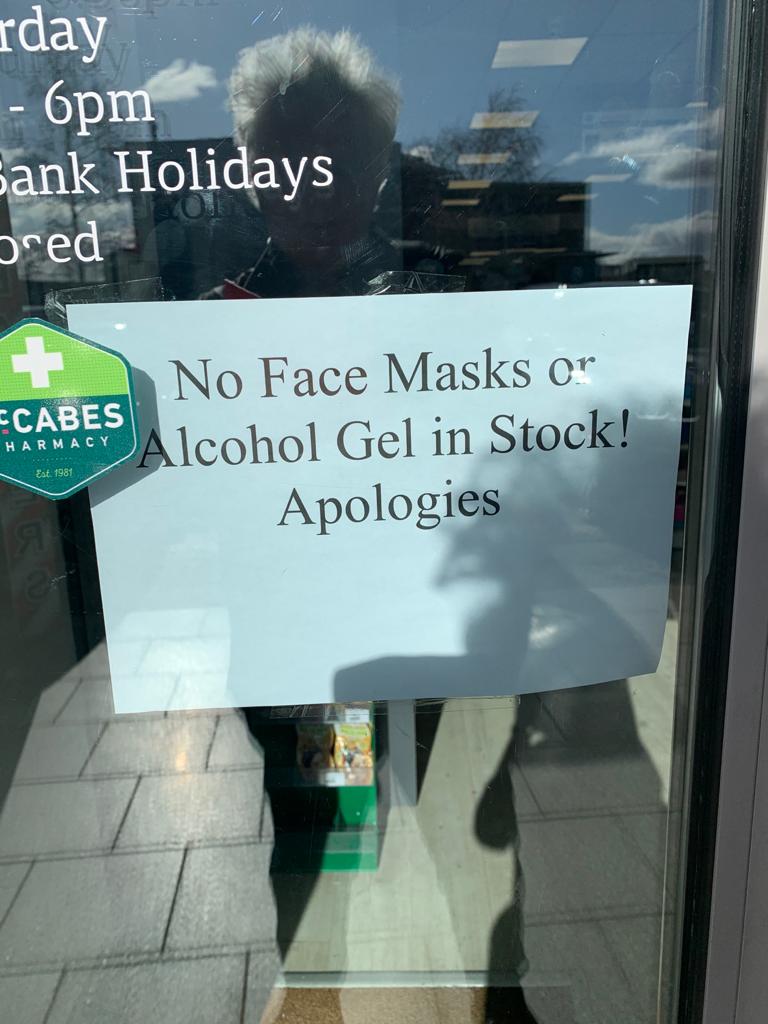Five weeks ago my old pal and client of 10 years Tom Keppel rang and said, “Jonny, I’m getting really worried about this coronavirus thing, I think it could really harm my practice.” Tom’s lovely practice is in Sutton, Surrey. My response: “Don’t be daft Tommy, you have nothing to worry about, it’s getting pumped up by social media and the press and anyway it’s only like a type of flu.”
Two and a half weeks ago, arriving in Bologna to visit a client in San Marino, I was confronted by two guys dressed head to foot in special medical suits with goggles, masks and thermometer guns at the foot of the aircraft steps. All the passengers were spooked. I thought it was strange, but so far I was still in the camp of “this is not going to affect me or my world”.
On Saturday the headline of the normally calm and stable Daily Telegraph said “Outbreak could leave one in 10 in hospital”. I dismissed it and resolved not to buy the Telegraph again as it was becoming very silly. I was still in denial. At a dinner party that night I was amazed to find that the majority of guests were awkward about kissing. “Is this really happening?,” I thought.

The pharmacy I visited in Dublin, which is gripped by coronavirus fears
I arrived in Dublin on Sunday and took a quick trip to the pharmacy to buy toothpaste. A sign on the door said face masks and alcohol gel were sold out. Finally I got it. I moved out of denial. I started thinking about how this was going to impact dentistry and it did not take me long to imagine the perfect storm.
The perfect storm
Imagine a scenario where one of your patients or staff contracts the virus. This is now quite plausible, with 90 cases in the UK (including a dentist in London) and six in Ireland at the time of writing. Most practices I work with employ associate clinicians from overseas and many have non-clinical teams from overseas — all these people may be receiving visits from partners or family members in badly hit countries like Italy, so they may have a higher risk of contracting the disease.
What happens if your practice is affected? The UK government guidelines for dental care settings are longwinded and technical. But everyone knows the essentials: quarantine people who show possible symptoms of the disease until they are tested and cleared. The BDA guidelines suggest it’s unlikely your practice will need to close. However, that will be up to the health authorities.
In the case of the London dentist who got the virus, he quarantined himself as soon as he developed a fever and flu-like symptoms after passing through Milan airport last week. Public Health England cleared his practice of any risk of infection to staff or patients. If a member of your clinical or non-clinical team was found to have transmitted the virus to patients there would obviously be a bad news halo in the media (social media, radio, TV, press), meaning new patients would see your practice as blighted or ‘infected’, and be less likely to visit in future.
The best case scenario, in my view, is that we are sliding into a slowdown of the market, and all practices should now be planning for this. The worse case scenario is that you see multiple cases of the virus among your staff and patients and your practice is temporarily shut down. The ramifications are scary. You won’t have to pay for your associate dentists but you will have to pay for everything else, with no revenue stream. You will need professional help to manage the public relations too.
How to prepare for best and worse case scenarios
The last 20 years (even including the 2008 financial crisis) have provided a buoyant set of market conditions and so any experience you may have of real recession, if you have any, is a long-distant memory. There are a number of tactics you can deploy depending on your practice’s circumstances but the overarching theme is to plan for the worst, and of course hope for the best.
We have developed an action plan which includes:
- Financial planning — talk to your accountant or book a call with my senior colleague at Hive, Hayley Robins [email protected] who will be happy to guide you
- Work out how long your cashflow reserves will last. If shutdown happens it will hurt
- Stockpile cash now
- Hold on any expansions / new projects / pay reviews
- Rally the team — make sure they understand the situation, but don’t panic them
- Ask your team not to travel to continental Europe or have visitors to their home from overseas (although you can’t insist)
- Follow the government guidelines and be seen to be following them
- Prepare a closedown plan
- Prepare a re-opening plan
- Lead from the front
We’re here to help.
JJF

